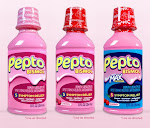
Greg Paulus used to be one of the top quarterback recruits in the country in 2005.
He played high school football at Christian Brothers Academy in Syracuse, NY.
Scout.com ranked him as a 4-star QB, and the 9th ranked QB recruit in the land in 2006.
While playing high school football, Paulus was a stud. He set New York state high school football records on fire by throwing for 11,760 yards and accounting for a jaw-dropping total of 152 touchdowns in his career.
What's more is that Paulus operated a spread offense in high school and became renowned for his throwing accuracy, field vision, leadership skills and being able to make big plays with his feet.
Paulus committed to Duke basketball in 2005 and has played there for 4 years. But apparently Mr. Paulus still has some athletic eligibility left and may be able to play some football - 1 year of football to be exact.
Apparently several sources now confirm that Rich Rodriguez has expressed serious interest in having Greg Paulus come to Michigan to exhaust his athletic eligibility with the Wolverines on the gridiron.
Fan reactions have been mixed.
On the one hand, some fans believe this is controversial and somehow sends a disturbing message to the existing quarterbacks on the Michigan team: Tate Forcier, Nick Sheridan and incoming star freshman Denard Robinson.
In my view, UM coach Rich Rodriguez is simply doing what he said he would do all along in terms of increasing competition at quarterback. Rodriguez has repeatedly said that he wants players he can "win with", and that particularly at quarterback he likes to have 2 or 3.
I would agree that pursuit of a 1-and-done prospect at QB sends a certain message to Nick Sheridan and David Cone. I'm not in agreement that the incoming freshman, Forcier and Robinson, have the same perspective since both committed to Michigan assuming they would need to prove themselves and earn playing time. In fact, I don't think Sheridan and Cone are under any illusions that they must compete for playing time during fall practices, or carry a clipboard.
It's year 2 in the Michigan program, and while Rich Rodriguez probably senses some progress being made in terms of the team grasping the offense, the defensive schemes and getting in better physical condition, he is for good reason very concerned about his depth chart at quarterback and probably defensively as well.
Going after a guy like Paulus says a couple of things:
1. Rodriguez in year 2 is attacking needs with a sense of urgency. He wants to win now.
2. Rodriguez wants better competition week in and week out at quarterback this fall.
Come hell or high water, the quarterback play must improve, and fast. More players means more options. The competition in practice will serve to help all of the quarterbacks, but Greg Paulus the least of all.
3. Rodriguez needs 2 quarterbacks he can win with (at least). He probably feels he can win with Forcier (eventually). He has not seen Robinson under center yet. He needs a third or fourth option in case of injury.
4. RR's confidence in Nick Sheridan must have taken a hit following his minor break injury in spring practice. Forcier might start for Michigan this fall (he has a jump start on Denard and Nick), but Forcier, who struggles to bench 135 lbs, simply does not have the physical condition to avoid injury this fall, unless he plays like the Jumper.
5. RR wants a body on the roster to replace Steven Threet.
All of these things serve as a painfully reminder to RR just how horrid UM's depth chart is right now.
My view is that Paulus cannot hurt the program. While I'm excited about the UM football teams' improvement in the off-season, the football team can't erase the 3-9-0 season with workouts and spring practice alone.
The downside of adding Paulus is that he's a one-and-done player. He is unlikely to contribute early anyway. Paulus' confidence and leader-mentality could sow some seeds of divisiveness with the existing UM QBs and even other players on the team. But I doubt it. Forcier and Robinson are confident of their abilities and facing competition from anyone on the roster. Otherwise they would not have come to Michigan. More quarterbacks will be committing to Michigan next year alongside 2010 frosh QB Devin Gardner.
The other downside might be that Paulus hasn't thrown a football for 4 years, nor played in a Div 1 football game before, so he's sort of on equal footing with Forcier and Robinson in that department.
The final downside would be if Paulus is coming to Michigan only for Paulus. If that's the case, this will be a disaster. Michigan football needs "team" and "cohesiveness". Michigan was 3-9-0 last year. Rodriguez cannot afford any player with a "if it's gonna be, it's gotta be me!" attitude.
The upside is that Paulus is a great athlete and a winner. He's a team commander and a leader. He's been associated with championships, and championship- and olympic-level coaching.
Paulus has confidence and character that could really rub off postively on younger QBs and the rest of the team. Also, assuming Paulus can be true to his H.S. quarterback form, this kid simply makes big plays under center, and serves as a nice insurance policy that Michigan desperately needs at quarterback.





